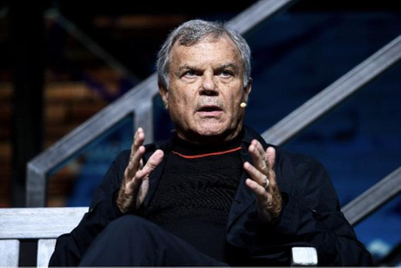
"Whether you believe Gustavo was innocent or guilty — and that has yet to be determined in the court of law — in the court of public opinion, he has been judged and been found guilty," said Sorrell during an interview conducted by Ken Auletta, a writer for The New Yorker. "He thought and I thought that it was in best interest to the company that he should resign and be replaced by Tamara Ingram as CEO."
When Auletta pressed Sorrell on the timing of Martinez’s resignation, before the investigation had been completed, Sorrell repeated the statement he made last week that the decision for the CEO’s resignation was a mutual one. "It was a mutual agreement that it was in the interest of the company, the clients, to try to end the public examination," he said.
Auletta questioned WPP’s handling of the JWT case, including an early statement made that its investigation had not found any evidence of the claims made by Erin Johnson, the agency’s chief communications officer who filed the suit. "The statement that we made was that there was nothing found as yet. There are two key words there, as of yet," he said.
WPP initiated an investigation immediately, he said, upon first receiving a letter from Johnson’s lawyers and the subsequent filing of the suit. The company later hired Bettina Plevan "in order to investigate independently," he said.
Sorrell vehemently countered the controversial statements made by Publicis Group CEO Maurice Levy yesterday that the JWT case was an isolated incident involving "one man’s mistake."
"His view was that the J. Walter Thompson and Gustavo Martinez case was a one-off. I disagree. I would disagree violently with that supposition," said Sorrell. "Maurice has a habit of ignoring the facts."
To illustrate his point, Sorrell pointed to his own holding company’s female employment numbers, which show 50% women in junior and mid-management positions, but "drops unacceptably to a third," he said, adding that the same thing is true for other groups, such as LBGT, transgender, Hispanic and African Americans. "It is unacceptably low."
While the industry has put programs in place to try to improve diversity in the industry and to provide training for racial and gender bias, "it is clearly not been enough," he said.
Auletta also asked Sorrell whether Johnson would be returning to the agency. "It’s up to her whether she wants to come back to the company," he said.



.jpg&h=334&w=500&q=100&v=20250320&c=1)
.jpg&h=334&w=500&q=100&v=20250320&c=1)
.jpg&h=334&w=500&q=100&v=20250320&c=1)


.jpg&h=334&w=500&q=100&v=20250320&c=1)


.jpg&h=334&w=500&q=100&v=20250320&c=1)



.png&h=268&w=401&q=100&v=20250320&c=1)
.jpg&h=268&w=401&q=100&v=20250320&c=1)
.png&h=268&w=401&q=100&v=20250320&c=1)
.jpg&h=268&w=401&q=100&v=20250320&c=1)
